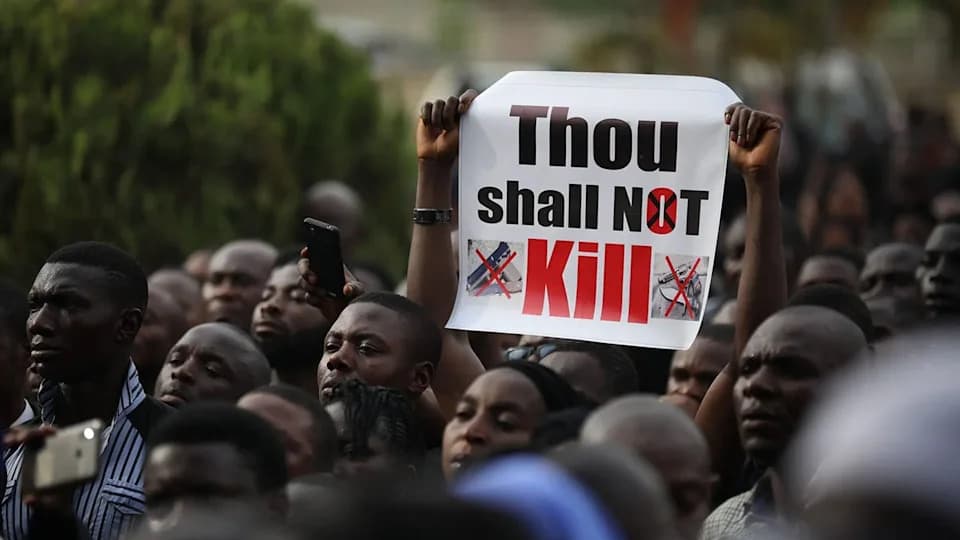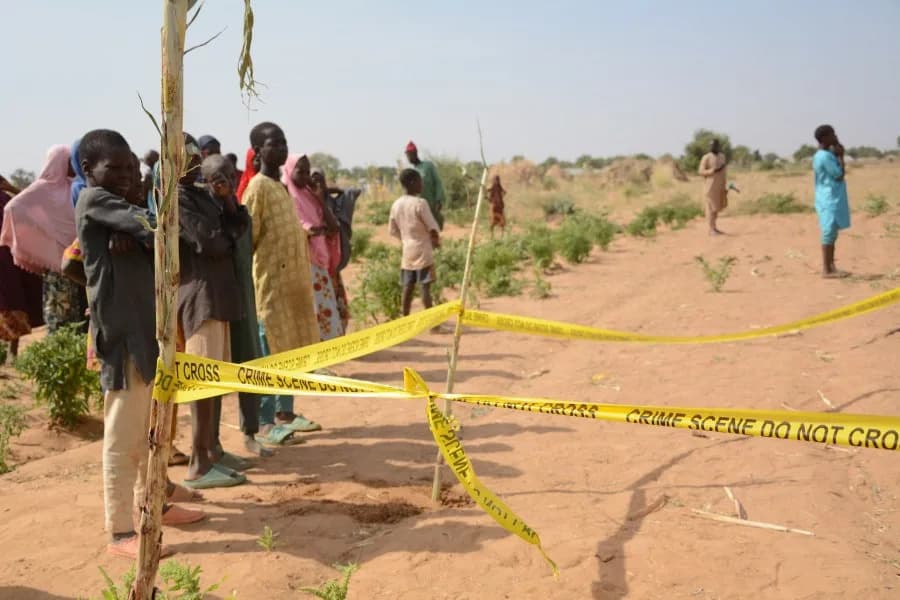The U.S. House Subcommittee on Africa held a hearing on escalating violence against Christians in Nigeria, which witnesses described as marked by mass killings, kidnappings and impunity. Testimony cited a June attack in Yola that reportedly killed about 278 people and estimates of thousands killed in recent years. State Department officials said the U.S. is developing measures to press Nigeria to better protect religious communities, while lawmakers and experts cautioned against oversimplifying the crisis and stressed the need for balanced, multilateral responses.
U.S. Lawmakers Warn Nigeria Has Become ‘Deadliest Place on Earth’ for Christians as Violence Surges

The U.S. House Subcommittee on Africa convened a hearing to examine what Chairman Rep. Chris Smith (R–N.J.) described as the "systematic and accelerating" persecution of Christians in Nigeria. Lawmakers from both parties questioned administration officials and outside experts as witnesses recounted a breakdown of security marked by mass killings, abductions and widespread impunity.
Scope of the crisis. Multiple witnesses described large-scale attacks, including testimony about a June 13 incident in Yola that, according to reports cited at the hearing, left some 278 people dead. Some lawmakers and faith leaders also cited estimates that suggest thousands of Christians have been killed in recent years—figures that witnesses linked to religiously motivated violence and to the failure of local authorities to protect vulnerable communities.
Voices from the hearing. Bishop Wilfred Anagbe of the Makurdi Diocese, appearing by video, spoke of burned churches, mass displacement and clerics targeted for abduction. He urged stronger international pressure and humanitarian support for displaced civilians.
"Nigeria remains the deadliest place on earth to be a Christian," Bishop Wilfred Anagbe said. "More believers are killed there annually than in the rest of the world combined," he added, urging concrete measures to protect communities.
Chairman Smith called the situation "ground zero" for what he characterized as brutal anti-Christian persecution and said religion was a driving factor in many attacks, even as he acknowledged that other forces may also be present.
Calls for balanced analysis. Rep. Sara Jacobs (D–Calif.), the subcommittee’s ranking member, agreed the insecurity is devastating but warned against overly simplistic explanations. She emphasized overlapping drivers of violence—extremist insurgencies, farmer–herder clashes and organized banditry—and noted that recent kidnapping victims have included Muslim girls, underscoring that violence affects diverse communities.
Experts at the hearing also cautioned that narrowing the crisis to a single narrative could deepen divisions and hinder effective solutions. Oge Onubogu, director of the Africa Program at the Center for Strategic and International Studies, urged U.S.–Nigeria engagement "from a place of honesty" and stressed the need for quick, coordinated action to address insecurity.
U.S. government response. Two senior State Department officials, Jonathan Pratt and Jacob McGee, acknowledged the severity of the attacks while defending U.S. policy. They described the situation as a very serious security problem and said the United States is developing measures to "incentivize and compel" the Nigerian government to better protect religious communities. Officials also noted that blasphemy laws in some northern states can carry severe penalties and called those statutes incompatible with democratic norms.
Some lawmakers called for the Country of Particular Concern designation for Nigeria to be backed by targeted sanctions and increased humanitarian assistance. Others warned that talk of unilateral military intervention would be unlawful and counterproductive, urging diplomatic, development and security cooperation instead.
Closing warnings. As the hearing concluded, Chairman Smith stressed Nigeria’s constitutional obligation to protect its citizens and warned the international community against turning away from the crisis. Lawmakers and witnesses urged a combination of pressure on Nigerian authorities, expanded humanitarian support for displaced civilians, and careful, multilateral approaches to address the complex drivers of violence.
Help us improve.


































